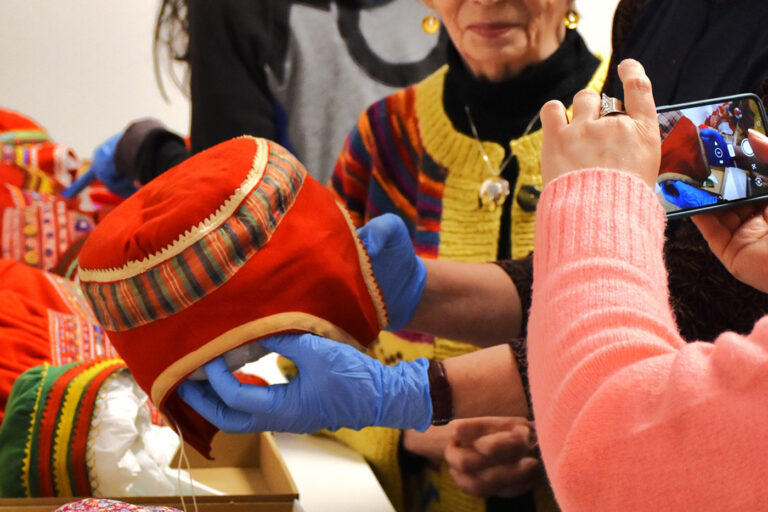Early childhood experiences of stress increase susceptibility to mood symptoms
High stress experienced in early childhood is a risk factor for neuropsychiatric disorders, as well as conditions such as depression and anxiety. A team of researchers led by Sari Lauri is currently examining the impact of early stress experiences on the brain’s neural networks.


Text: Essi Kähkönen
Photos: Sami Mannerheimo
Early childhood experiences of stress have a significant impact on the later development of the brain’s neural networks. The roots of many neuropsychiatric disorders, such as attention deficit hyperactivity disorder (ADHD), appear to lie in early childhood and experiences of high stress at that time.
Stress and negative emotional experiences affect the brain’s limbic system and especially the amygdala – the parts of the brain that regulate our emotions, social behaviour and emotional learning.
“Strong experiences of stress can make the person susceptible to symptoms at a later age.”
“Strong experiences of stress can leave a memory trace in the brain’s limbic neural networks and make the person susceptible to symptoms at a later age,” explains research director Sari Lauri of the University of Helsinki.
Early stress can make you ill
Young people who have previously experienced an early high level of stress, caused by events such as domestic violence, have been found to suffer from depression, diverse phobias, generalised anxiety and anger management issues, for example.
According to Lauri, childhood stress alone is not likely to cause later symptoms, but early negative experiences are a risk factor.
“The development of the brain’s limbic system and amygdala continues after birth, through childhood and into adolescence. This is why these parts of the brain are more vulnerable than others to early negative emotional experiences.”
If powerful negative emotional experiences take place in early childhood, they affect the development of the brain’s neural networks.
“The development of emotional skills, such as social skills and interaction with others, may also be disrupted.”
Basic research provides keys for prevention and treatment
Lauri’s research group is focusing on the amygdala and the ways in which stress experiences in early childhood mould the related neural networks.
“It appears that the stress effect is directed particularly at GABAergic neurotransmission, and especially one specific cell type,” Lauri explains.
GABA (gamma-aminobutyric acid) is one of the most common neurotransmitters in our brains.
“Early negative experiences are a risk factor for later symptoms.”
“It is important to explore how changes in the functioning of cells affect the development of neural networks in the long term, and how they guide our behaviour not only in childhood and youth but also adulthood. Even if the exposure to high stress takes place at an early stage, symptoms may not develop until after a long delay.”
Lauri believes that concerted basic research will lead to neuropsychiatric disorders, depression and anxiety among children and adolescents being treated more effectively – or even prevented – in the future.
“The research that is currently being conducted here and elsewhere will hopefully make it possible to manage symptoms in the future, and to treat them with new medicines that are more specifically targeted to nerve cells, in combination with therapy.”
Substantive leadership
Sari Lauri leads a team of seven researchers at the Neuroscience Centre of the University of Helsinki.
“For me, research optimally consists of gaining insight, finding new perspectives and learning. It is great to examine a hypothesis and test it to find out its validity. It always motivates me to go on,” she says.
Lauri says that the grant from the Cultural Foundation was received at an important point. It has helped to fund the work of visiting researchers, for example.
“My approach as a research director is fairly substantive and I want to ensure that my team members have the best possible working conditions. That allows us all to focus on essentials.”
The research group led by Sari Lauri received a EUR 39,000 grant from the Children’s Castle Foundation Fund for researching the neurobiological mechanisms of psychiatric syndromes related to early childhood stress.



